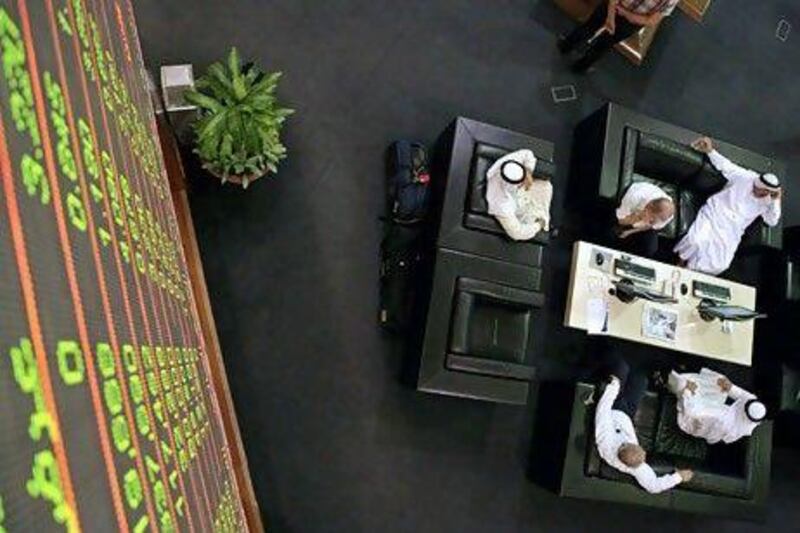The UAE market regulator has given brokerages an extra month to renew their licences as the crisis in the industry deepens.
Depressed markets and dwindling volumes forced 46 brokerages out of business last year. Now the Securities and Commodities Authority (SCA) is offering a period of grace for licence renewals as companies decide whether to continue trading or close.
"Many brokerages have not had their paperwork ready for submittal ahead of the Dec. 31 deadline as they assess whether to continue their operations in the current environment," an SCA statement said.
CAPM Investment, based in Abu Dhabi, became the latest investment company to scale back its business, its chief investment officer, Mohammed Ali Yasin, told The National yesterday.
The company is closing its asset-management division and may halt its investment banking operations.
CAPM and Das Holding, another Abu Dhabi investment firm, together have a 50 per cent joint-venture holding in Asayel Shares & Bonds brokerage.
"The revenues from the markets are not covering expenses," Mr Yasin said. "You have to bring down costs to have more oxygen."
Asayel closed its branch in the Dubai Financial Market last month.
Many brokerages closed in the Emirates last year after the economic disruption associated with the Arab Spring uprisings and the European debt crisis reduced trading volumes. The value of equities traded by UAE brokerages declined 45 per cent to Dh57 billion (US$15.5bn) last year compared with the previous year.
Fifty-seven brokerages are still operating in the Emirates, down from 103 at the beginning of last year. SCA did not say how many of those were seeking to renew their licences. Many foreign investment banks have restructured their operations to cope with declining business. Germany's Deutsche Bank has moved its head of equity capital markets back to London from Dubai. Nomura, based in Tokyo, closed its Dubai equity research unit, and the UK's HSBC has closed its retail brokerage unit in the Emirates.
"There is no volume, and nobody is making any money," said Ali Al Shihabi, the chairman at Rasmala Investment Bank in Dubai. Rasmala closed its retail brokerage operations in May and absorbed its private-equity unit into its corporate finance business.
"If the regulators want to make a meaningful contribution for the health of the stock markets, they need to merge all three bourses: the Abu Dhabi Securities Exchange, the Dubai Financial Market and Nasdaq Dubai," Mr Al Shihabi said.
The index compiler MSCI last month postponed a decision on whether to upgrade the UAE stock markets to "emerging market" status. MSCI considers the UAE a "frontier market".
"They should have also made sure they met all the criteria by MSCI because foreign capital sends a vote of confidence. Retail investors are flush with cash but they are not investing," Mr Al Shihabi added.
Initial public offerings in the region declined almost 70 per cent last year, according to a report by Ernst & Young this month. Capital markets across the Middle East and North Africa raised $843.9 million in public share sales last year, compared with $2.8bn in 2010.
UAE corporations and government-related companies have had to pay higher yields compared with other regional markets since Dubai World initiated a $24.9bn debt restructuring in 2009.
"The investor base for the equity market is now predominantly retail speculators as institutional investors and high-net-worth clients have moved to the debt market because it is cash-yielding," Mr Yasin said.





